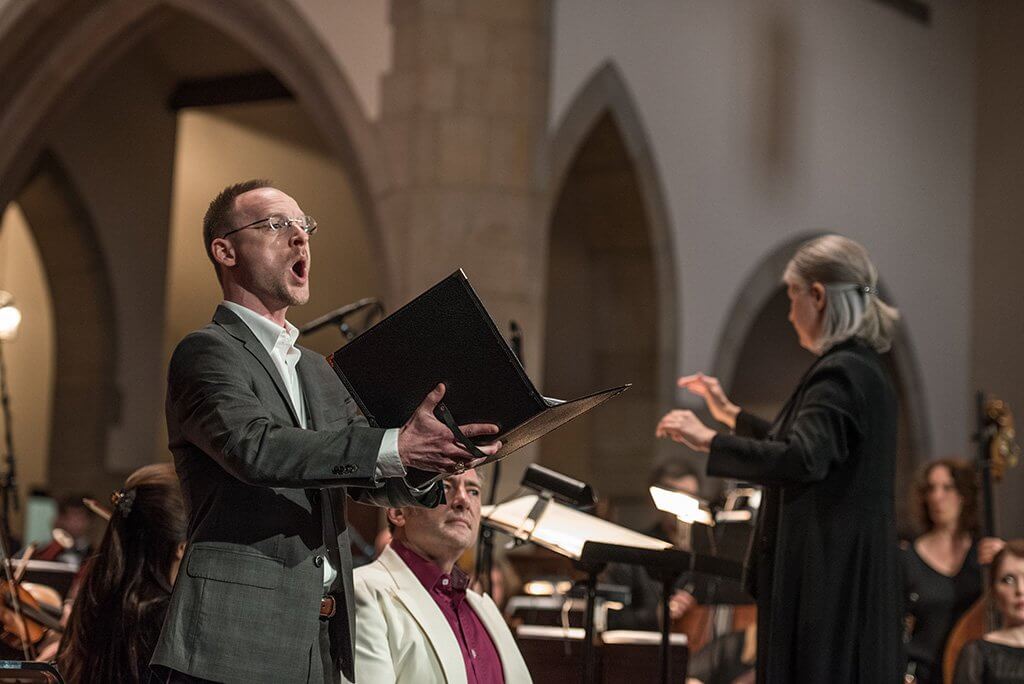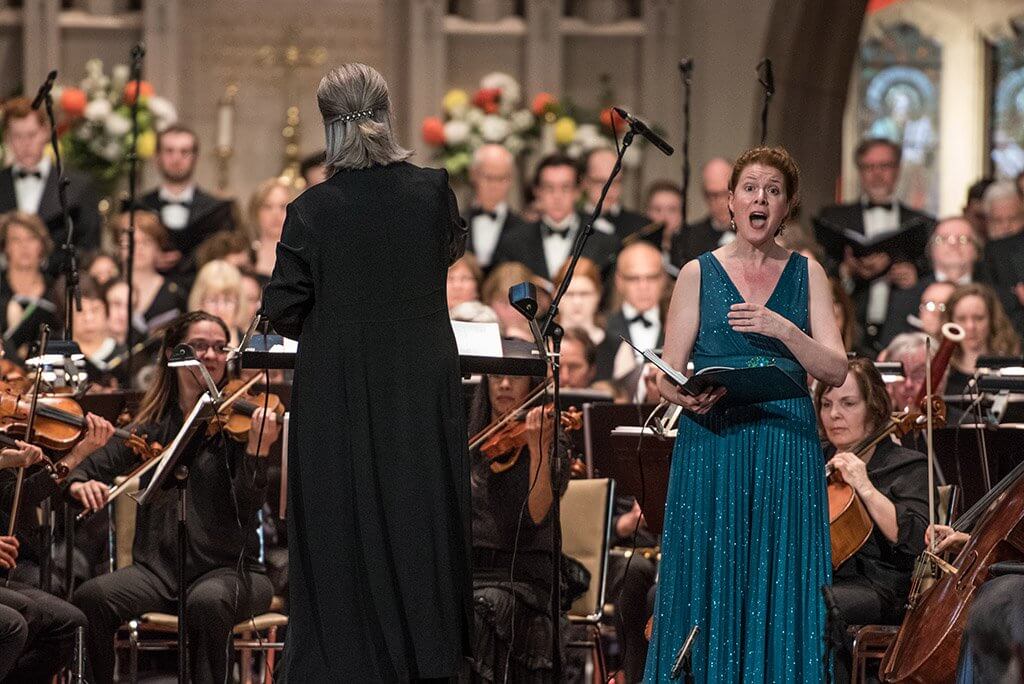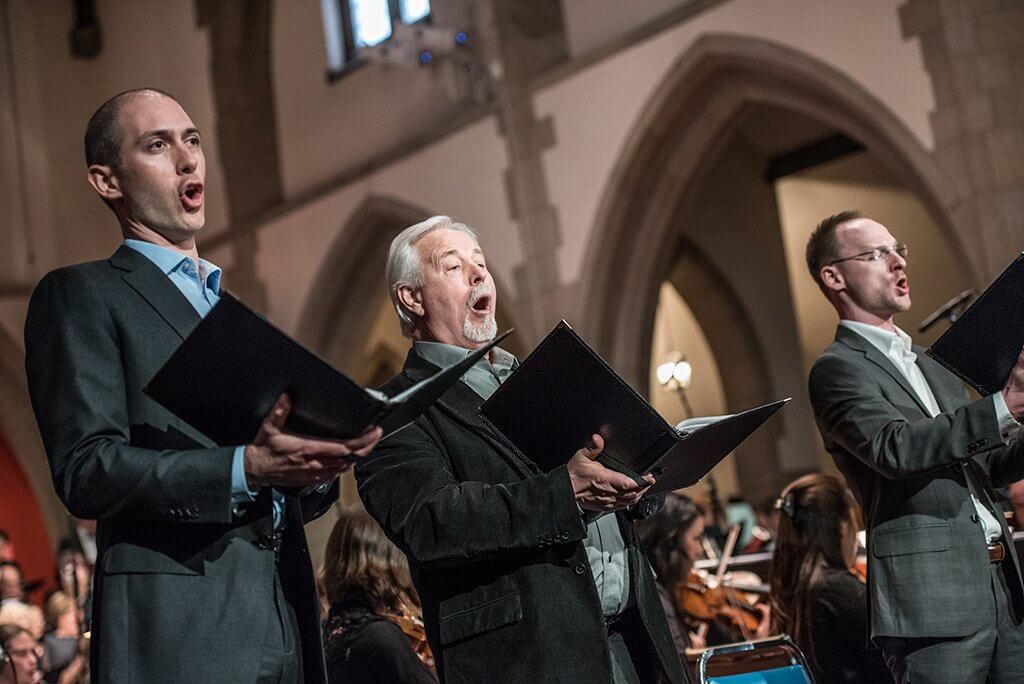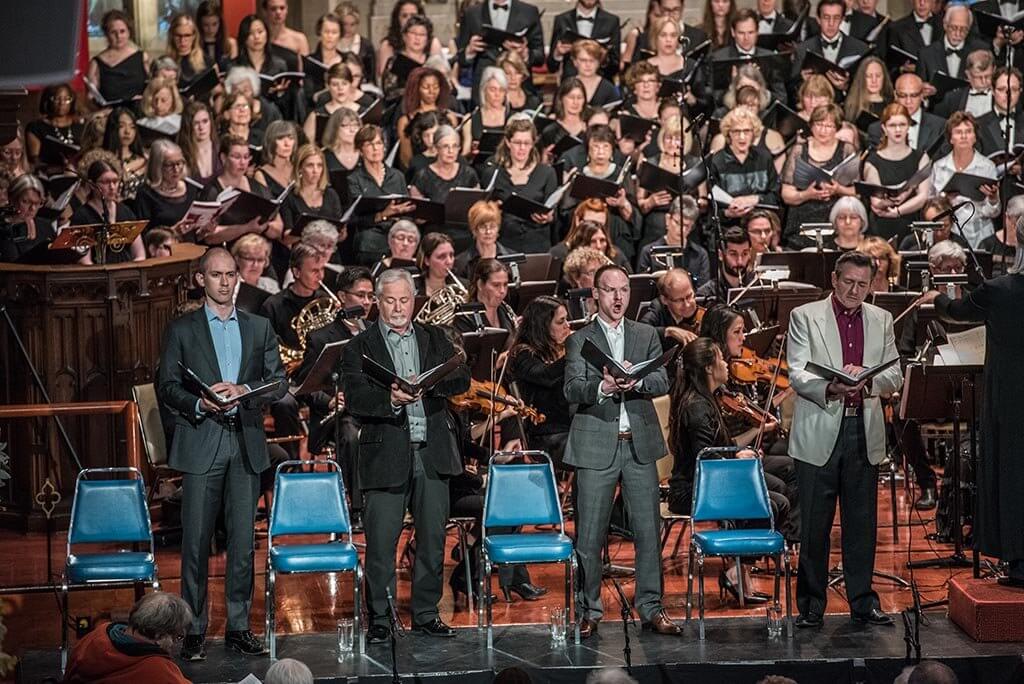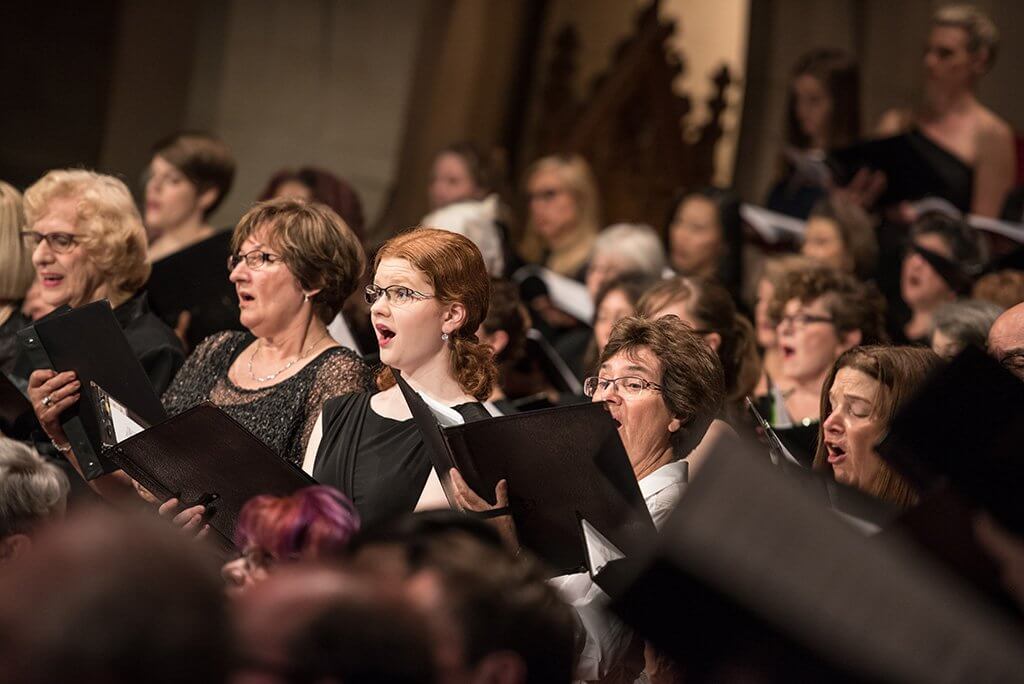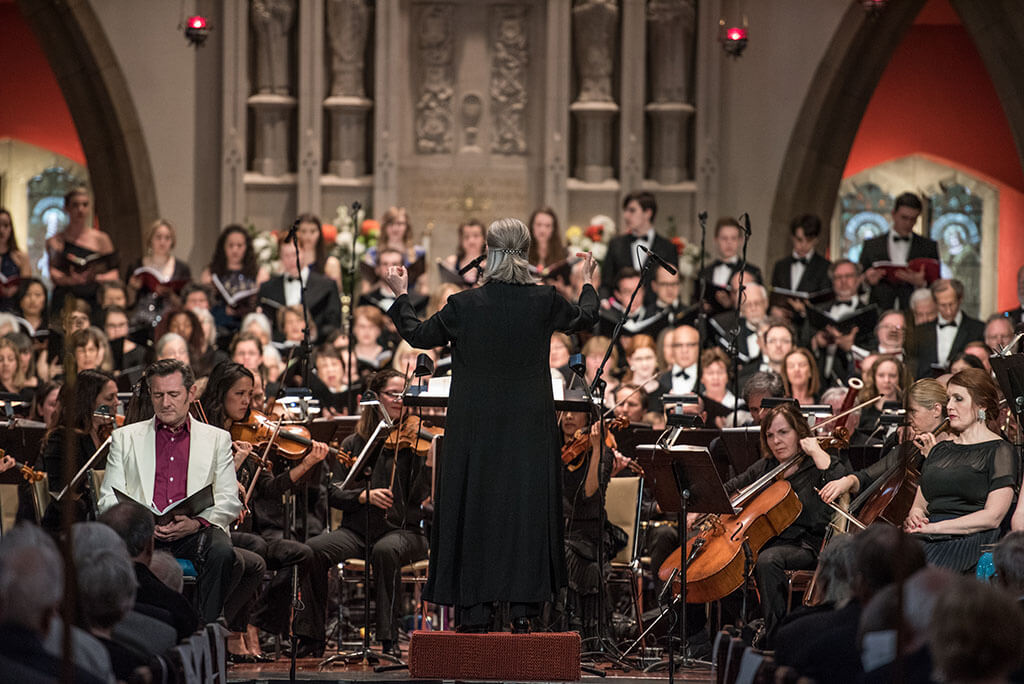
Elgar’s The Apostles. Pax Christi Chorale and the Etobicoke School of the Arts chamber choir. Stephanie Martin (conductor). Meredith Hall, Krisztina Szabó, Brett Polegato, Lawrence Wiliford, Daniel Lichti, and Michael Uloth (soloists). At the Grace Church on-the-Hill. Saturday, April 29.
The story of Jesus has been told countless times by the grandest music centuries over. Yet, I’m always surprised because there is no limit to the musical interpretations, settings, and orchestrations that have and continue to tell this story. Pax Christi Chorale has taken on a Canadian premiere of an old work, Edward Elgar’s the Apostles, first performed in 1903. They have delivered something both new and surprising under Stephanie Martin, presenting her final two concerts at the helm for 20 years.
Stephanie Martin has chosen Elgar’s biggest work — The Apostles — for her final concerts before she moves on to focus on composition. At the helm of the sizeable orchestra and huge choral forces, Martin is a graceful, consistent, and clear conductor. She is a rock, providing a sturdy clarity of measure while providing the dramatic cues to bring the music to life.
The usual singers of Pax Christi Chorale were joined by the Etobicoke School of the Arts Chamber Choir providing a solid 100+ voice ensemble. Intonation and control were consistent and the choir produced a robust sound. Diction fell flat throughout most of the performance, the choir drowned underneath the small but mighty orchestra; a problem of diction, but also the boomy resonance of the church favouring instruments. The audience found itself surrounded by sound with the at-times devastating percussion poised in the Southern nave of the church and the organ emanating from the pipes along the North side of the church. The orchestra sat squarely in the middle, closest to the audience.
The energy of the choir provided a triumphant sound at time but was most effective on their excited pianos and pianissimos like in “The Betrayal” as they say “I will smite the Shepherd and the sheep of the flock shall be scattered abroad.” The clarity with which these clearly enunciated and well-placed consonants shows that this Choir does have the ability to their text be audible.
The final 10 minutes or so of the concert became an unruly wall of sound with every musician battling it out to be heard. Four of the six soloists still tasked by Elgar to bring the work to a close are absolutely buried by the unclear choir and the overpowering orchestra. It’s satisfying to feel that wall of sound; however, even with text in front of me, I could not discern any words.
The first soloist we hear is Meredith Hall as the welcoming angel; controlled and articulate as she maintained centeredness, building and retracting dynamic height. Brett Polegato’s Jesus was charismatic, commanding, and hopeful as appropriate. Our first introduction to Jesus is through the Beatitudes to which the People and the Apostles respond with text from the Old Testament. Lawrence Wiliford’s tenor filled the church adequately. Powerful, robust waves of sound emanated and carried clearly into the church. Daniel Lichti’s grand voice provided an anchor of sound as Peter the Apostle.
The first half is carried by Krisztina Szabó as Mary Magdalene, specifically the longest movement in the piece “In the Tower of Magdala.” In the story and the heavy texture of the music, Elgar has chosen the story of salvation to be demonstrated not by the Apostles or Jesus in this drama, but by Mary Magdalene. With Szabó’s warm depth leading us on this journey, she – the sex worker, the hated, the denigrated, the ostracized, the condemned — she is the story of Jesus’s salvation.
Michael Uloth carried the drama of the second half of the work, being the main character of Judas in Part IV including the longest piece of exposition in the entire work in “The Betrayal.” Providing a clear interpretation, his voice carried as the changing orchestrations underlay. Elgar spends much time focusing on Judas, his deep sadness at the cost of his betrayal, and his unfulfilled plan that Jesus would assert his power over mankind.
Those more familiar with the Bible and the various Christian traditions, like Stephanie, will appreciate the inclusion of the Bible verses in the program. No doubt a thoughtful inclusion by Martin, the references also provide an insight that I completely missed in earlier pieces I’ve written on the Apostles.
To write for the mainstream British, Elgar had to use the Anglican King James Version of the Bible. This would have conflicted with his upbringing as a Catholic and the use of a different version, probably based on the Challoner versions. Throughout the work — the books of the Apocrypha — books the King James Version recognizes as part of the Bible but not canon — are used by Elgar. “Tobit”, the first and second book of “Esdras”, “Ecclesiasticus (or Sirach),” “Judith,” and the “Wisdom of Solomon” are all part of the Apocrypha and used by Elgar throughout The Apostles. This is noticeable in Mary Magdalene’s exposition where additions to the books of Esther and Baruch are chosen by Elgar to express a desire for deliverance and salvation. Yet, these have always remained part of Catholic versions of the Bible.
This inclusion may have indicated a deeper commentary on not only his own unique place as a Catholic in a deeply Anglican Britain, but also to use these particular phrases to tell the story of Mary Magdalene and Judas provides a subversive undertone to the message of Jesus. Using non-canonical texts to tell the story of Mary Magdalene and Judas is like saying that you do not know the full story, and maybe, you have it wrong. Knowing Elgar was a master of hidden messages, this is not an idle choosing of passages; he deliberately chose these texts.
One of the possible reasons for the lack of performance of this particular Elgar work is because of the subversive message of the two main characters he chose. That the focus of this work on a sex worker and the man considered the greatest betrayer in history has caused its disfavour amongst artist and audience. But I believe this subversive message may be closer to the true story of Jesus, the Apostles, Mary Magdalene, the Virgin Mary, and his early followers.
Martin described The Apostles like an onion, peeling back layers of messaging. As she has lead her Choir into the presentation of this work, she has taken them on a journey to express the stories at its core and to enlighten about Elgar’s messages along the way. It is a work that has many meanings, and one can always find something new and surprising every time.

